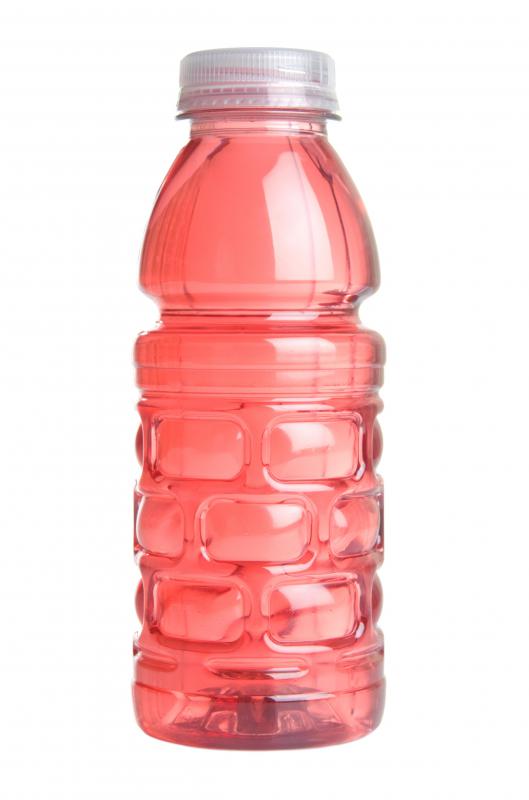At WiseGEEK, we're committed to delivering accurate, trustworthy information. Our expert-authored content is rigorously fact-checked and sourced from credible authorities. Discover how we uphold the highest standards in providing you with reliable knowledge.
What Are the Best Tips for Hypokalemia Management?
There are many ways one can accomplish hypokalemia management. As hypokalemia is a temporary condition in most cases, management involves ingesting beverages fortified with electrolytes. When hypokalemia is a long-term disorder, adjusting one's diet to include more foods with potassium should prevent any of the condition's symptoms. It may be necessary to consult a physician before starting to take potassium supplements.
Hypokalemia is a condition characterized by low potassium levels in the blood. The most common cause of hypokalemia is simply not ingesting enough potassium as part of one's diet. Other causes include excessive sweating, urination or diarrhea caused by medication or bodily disorder. Symptoms of hypokalemia include, but are not limited to, sore muscles, weakness and fatigue; mental impairment and loss of consciousness can occur in severe cases. Thus, it is necessary to treat the condition even if one knows it will only be temporary.

If one is experiencing temporary hypokalemia that resulted from diarrhea or sweating, drinking one of the many available sports drinks will help in hypokalemia management. Diet versions of these drinks exist for those who do not want to ingest large amounts of sugar. Specialized electrolyte formulas were invented for toddlers and children who experience diarrhea. Unlike sports drinks, these formulas rarely contain sugar and have a neutral flavor.

Hypokalemia management becomes long-term for certain groups prone to chronic forms of the condition. These groups include those with diabetes, the elderly and those with kidney problems. For these individuals, it becomes necessary to change one's diet to include foods rich in potassium. Bananas, tomatoes, beans and potatoes are just some of the natural foods that contain high amounts of potassium. Eating these foods a few times a week will prevent hypokalemia from developing.

Individuals who experience chronic symptoms of hypokalemia may decide to use potassium supplements as a form of hypokalemia management. Chronic hypokalemia may be the result of a previously undiagnosed and possibly serious medical condition. Before starting a supplement regimen, consulting a physician and/or having a physical exam may be necessary; medical testing may discover a previously undiagnosed medication condition that requires treatment such as renal failure or diabetes. If one is found to have these or another hypokalemia-causing condition, a physician will be able to create a treatment plan that addresses hypokalemia and the underlying cause. If a physician finds no serious underlying cause, it is most likely that he or she will allow a patient to begin a supplement regimen for hypokalemia management.
AS FEATURED ON:
AS FEATURED ON:













Discussion Comments
@umbra21 - I think that was the popular treatment for people with eating disorders for a while. They had to address their physical symptoms before going on to the emotional ones.
I hope your friend was all right in the end. I'm sure they would have kept an eye on her hypokalemia if they knew she could be in danger.
Bananas are often recommended for people suffering from this deficiency, but diabetics should, of course, make sure that they aren't going to upset their blood sugar before eating them.
I think beans are actually a better all around choice, just because they are often easier to slip into normal meals.
I had a friend who developed hypokalemia.
In fact, it happened because she was bulimic. You can lose a lot of potassium by vomiting, apparently. The doctors told us that that was sometimes the cause of death for bulimics because you need enough potassium to keep your heart functioning properly.
Their method of hypokalemia treatment was to try to make her eat bananas.
To be honest, I still think it was a stupid idea. She obviously had severe underlying emotional problems, and they refused to address those until her weight was under control. But, of course, she found it hard to stop, without addressing those problems!
Post your comments